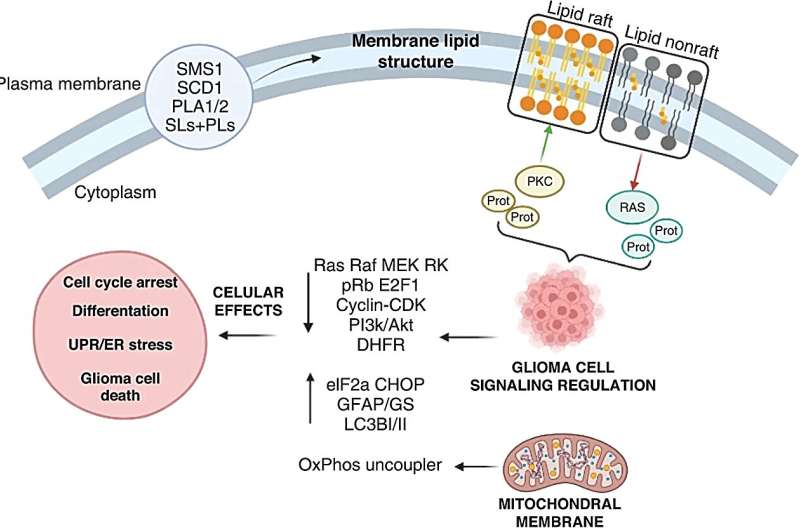This article has been reviewed according to Science X's editorial process and policies. Editors have highlighted the following attributes while ensuring the content's credibility:
fact-checked
peer-reviewed publication
trusted source
proofread
'Olive oil' drug shows early promise for some brain cancer patients

A unique drug derived from oleic acid—which naturally occurs in animal and vegetable fats such as olive oil—has shown promise for patients with an advanced form of the most common type of brain cancer, following a study led by The Royal Marsden NHS Foundation Trust and The Institute of Cancer Research, London.
Results from the multi-center Phase 1/2 study, which have been published in the British Journal of Cancer, suggest the drug could be particularly effective for patients with glioblastoma, an aggressive type of brain cancer which affects 3,200 people across the U.K. each year.
One patient experienced an exceptional response
Following these results, the drug is now being trialed in a global randomized Phase 2b/3 study focused on newly diagnosed glioblastoma patients, which is recruiting patients at The Royal Marsden.
The drug, named 2-OHOA, is a first-in-class treatment—which means it offers a new and unique way of treating the disease—and is designed to block the growth of cancer cells.
The early study enrolled 54 patients with recurrent glioblastoma and other advanced solid tumors. Of the 21 patients with glioblastoma treated, around a quarter (24%) responded to the drug and one patient experienced an exceptional response, which lasted for more than three years.
Drug alters cancer cell walls
2-OHOA is a synthetic lipid derived from oleic acid that works by restructuring the abnormal membranes of cancer cells. Lipids are a broad group of organic compounds which include fats and waxes, and they play an important role in the structure of cell membranes. Cell membranes are the exterior layer of a living cell and help to regulate its growth.
The abnormal membranes of cancer cells make it easier for proteins within each cell to meet neighboring proteins. This creates signals, which drives the disease's growth. 2-OHOA blocks these signals by making the membranes of cancerous cells act like normal cells, putting the brakes on the abnormal growth signals driving cancer progression.
Including brain cancer patients in early phase trials
Phase 1/2 study lead Dr. Juanita Lopez, Consultant Medical Oncologist at The Royal Marsden NHS Foundation Trust and Reader in Early Phase Drug Development at The Institute of Cancer Research, London, said, "Glioblastoma is an incredibly difficult disease to treat and patients with advanced disease have very poor outcomes, often living for just a year after their diagnosis. There hasn't been an effective new treatment for this patient group in nearly two decades, so drug development urgently needs to be accelerated.
"Unfortunately, patients with brain cancer often don't have the opportunity to participate in early phase trials. This underpins the vital importance of research into novel new drugs like 2-OHOA, which is designed from the same building blocks as olive oil. The drug works by reshaping the walls of cancer cells, blocking crucial growth signals that drive cancer.
"By including glioblastoma patients on this study, we were able to more quickly show early and hopeful results, supporting their inclusion in the Phase 2b/3 trial. We're very much looking forward to results from ongoing trials and hope this treatment eventually becomes widely available."
More information: Juanita Lopez et al, A Phase 1/2A trial of idroxioleic acid: first-in-class sphingolipid regulator and glioma cell autophagy inducer with antitumor activity in refractory glioma, British Journal of Cancer (2023). DOI: 10.1038/s41416-023-02356-1



















